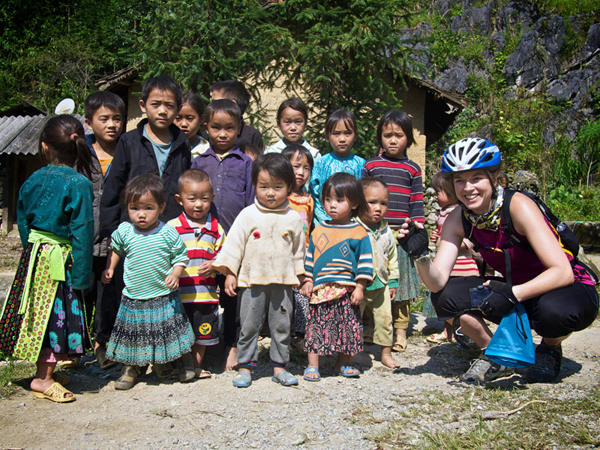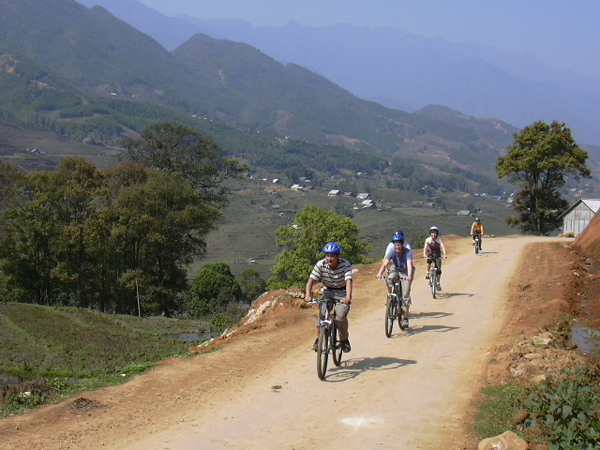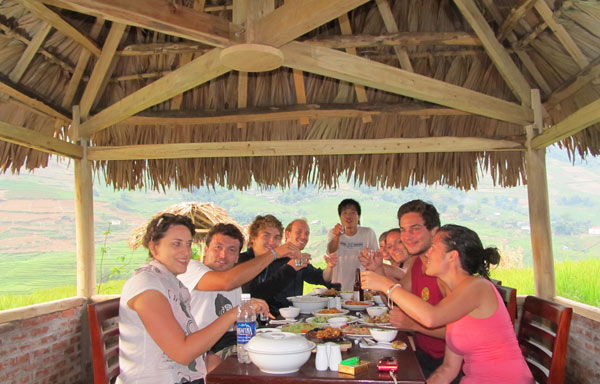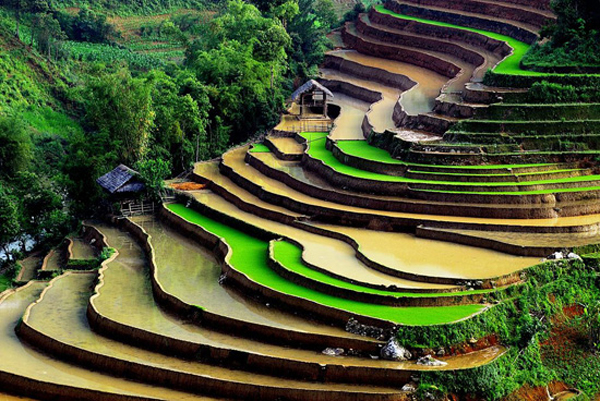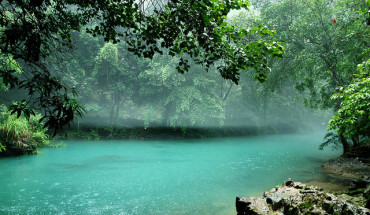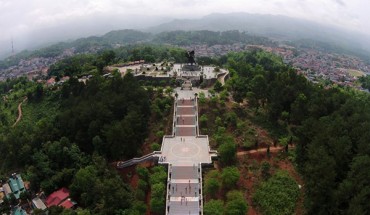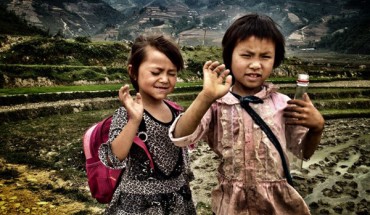Although a number of people would choose to travel by themselves. We still recommend you to book a tour with us to the Northwest of Vietnam with us to enjoy the hassle free trip. The far North West of Vietnam is still very much an adventure destination where the services of a guide from a reputable tour company can be a major bonus.
The advantages of booking a guided tour with Viet Vision Travel
There are several advantages to booking a guided tour of the North West circuit. For a start, unless you speak Vietnamese fluently your capacity to communicate with local people will be severely limited. Remember too that you will be miles away from western facilities (including medical ones) for many days, so being in good hands is essential. The tour guide will also guide you on the correct behavior and etiquette required when visiting ethnic villages. And perhaps most important, the tour guide can undertake all the necessary arrangements with local government to arrange overnight accommodation in ethnic villages and to obtain permits on your behalf when these are required.
Why choose our tour company: Viet Vision Travel for your visit North West
It pays to visit the Viet Vision Travel in person to find out about their services and speak to our guides in order to get a feel for the depth of their knowledge. We will arrange the most experience our guide for your trip. Some of our guide also speaks one or more of the ethnic minority languages (and is thus understanding of and sympathetic to ethnic minority culture) as well as having a good command of English.
The Vietnamese tourist industry is flourishing, and for a tour to the northwest of Vietnam, we offer tours, hotel bookings, ticketing for train, plane and car travel are proliferating. We are one of the major companies currently operate tours of the North West mountains circuit using experienced guides with an in-depth knowledge of the ethnic minority people.
Type of vehicle we use during your trip to the North West
Road conditions on the North West circuit currently demand us to use of a high-clearance four-wheel drive vehicle such as: Toyota Landcruiser throughout the far north. Our modern 4×4 vehicles are more expensive but they make the bumpy roads considerably more bearable and are, of course, air- conditioned.
During the trip to the North West of Vietnam
Road conditions
The roads in the North West are being upgraded on a daily basis, but at the time of writing some sections – particularly those from Son La to Dien Bien Phu and from Muong Lay to Muong Te – remain in very poor condition. Even in the dry season they can only be circumnavigated by four-wheel drive vehicles, and travelers should be aware that heavy rain can create landslides or turn a main road into an impassable quagmire, putting paid to even the most flexible itinerary.
Accommodation
In recent years the standard of hotel and guest house accommodation throughout the North West has improved markedly, but in some destinations facilities remain rather basic. However visitors are guaranteed a warm welcome by the friendly staff. As an alternative it is also possible for travelers to stay overnight in ethnic minority houses. We have a lot of experiences in the region so we always choose the best available accommodation at any site.
Eating out
Those looking for gourmet Vietnamese cuisine are advised to stay in Hanoi! That said, the standard of food served in public restaurants throughout the circuit is perfectly adequate.
In general travelers should bear in mind that the best food is served to local people in the typical quan com pho (rice and noodle shop), where the more adventurous will be able to sample exotic local delicacies like wild boar, dog, porcupine or snake.
Tipping
Tipping is not common outside the major cities of Vietnam, but if hotel or guest house staff carry your bags for you a small tip (VND 20, 000) would be appropriate.
Health Concern
When entering a new community of micro- organisms, you should always be very careful about what you eat and drink. In particular, avoid drinking water from the tap or taking ice in drinks, and when eating in restaurants be sure to wipe bowls, chopsticks and spoons before use with the paper tissues provided.
Always carry mineral water with you, especially when going walking, and try to drink approximately one large bottle per person per day.
Be on guard against other potential health hazards such as picking and eating wild berries or fungi or walking in undergrowth away from paths where poisonous snakes may be lurking. If you do need to walk through undergrowth, be sure to make as much noise as possible so as to scare away any beasties before you arrive!
During wet weather jungle leeches abound. Whilst posing no threat to your health, they can be difficult to remove and the head of a leech embedded under the skin can cause infection. It pays to carry small quantities of salt or a cigarette lighter with you to facilitate their removal.
Taking photographs
Photographing policemen, soldiers and sensitive installations such as army bases should be avoided, and unless you are using unobtrusive telephoto lenses you should always ask permission before taking pictures of local people.


